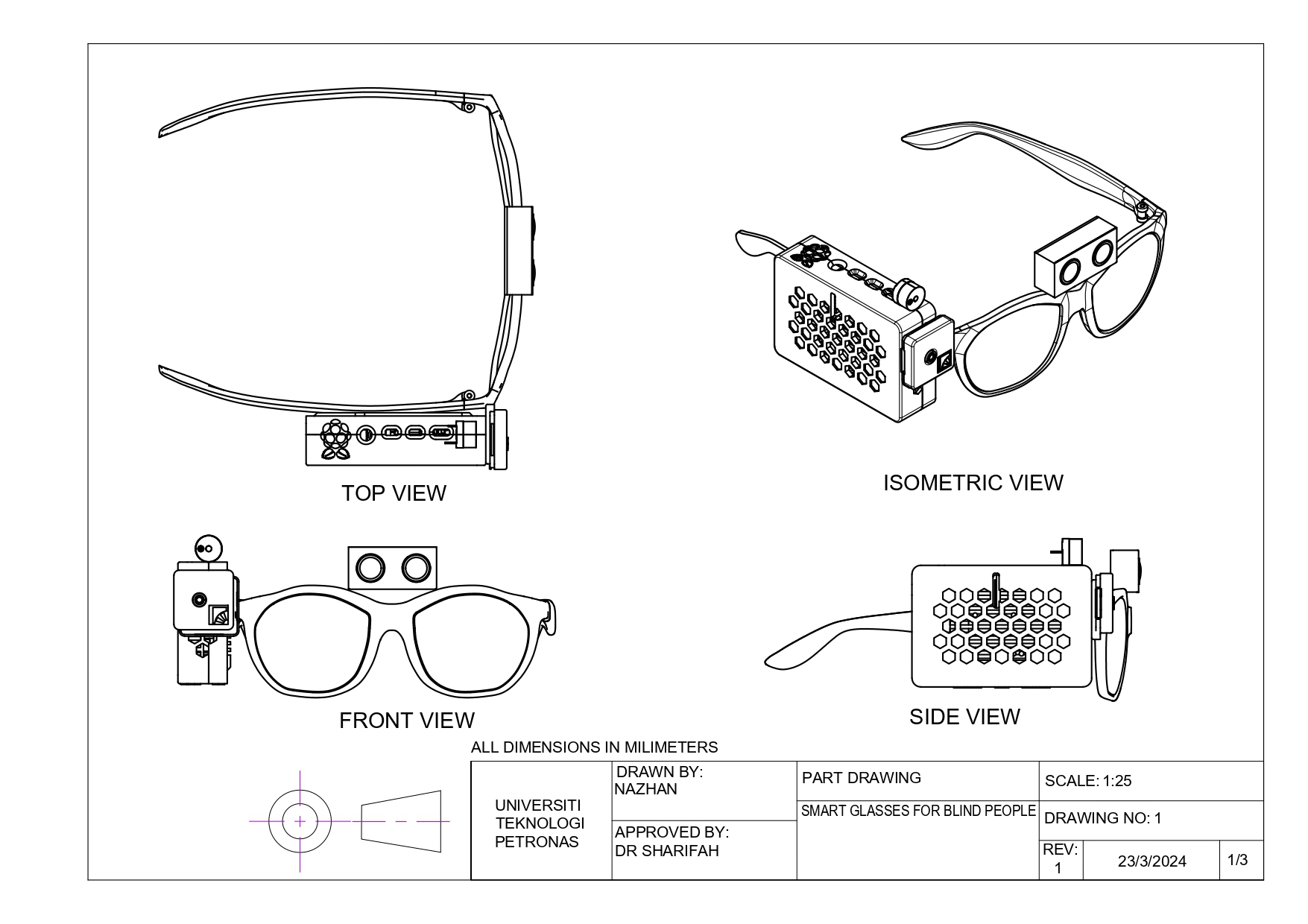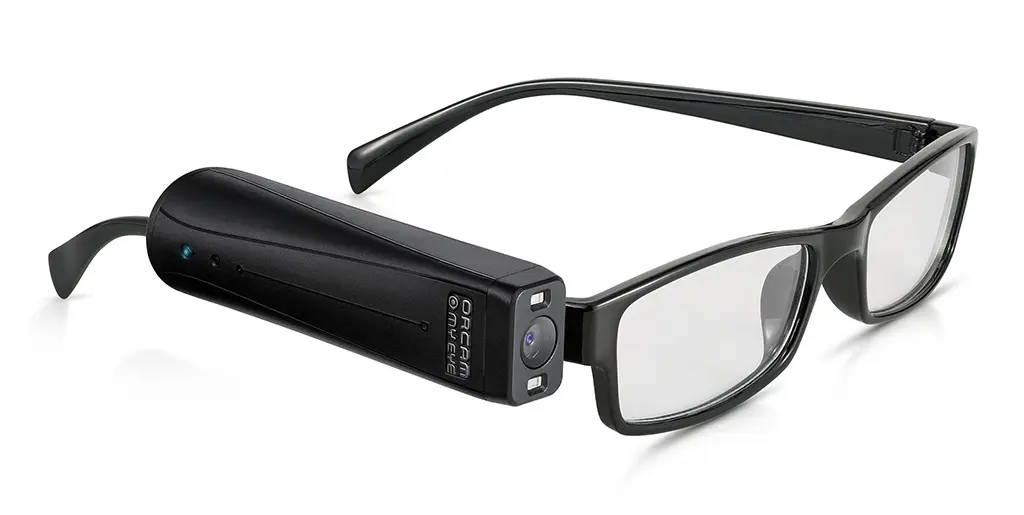Voice-Activated Assistive Devices: Empowering the Visually Impaired Through Innovation
Voice-Activated Assistive Devices: Empowering the Visually Impaired Through Innovation
Blog Article
Discover Advanced Assistive Tools for People With Visual Problems
The landscape of assistive technology for people with aesthetic disabilities is evolving quickly, providing an array of cutting-edge gadgets that improve freedom and interaction. From clever glasses that effortlessly merge visual input with acoustic support to advanced navigating applications that redefine spatial awareness, these tools are reshaping possibilities.
Smart Glasses Innovations
Smart glasses stand for a considerable improvement in assistive modern technology for people with visual problems. These ingenious tools incorporate various attributes developed to improve the customer's interaction with their environment. Outfitted with sensing units and cams, wise glasses can capture real-time visual info, which is then processed and conveyed to the individual through audio responses or haptic feelings. This functionality enables individuals to obtain prompt descriptions of their surroundings, boosting their ability to navigate and involve with the globe.
Furthermore, innovations in artificial intelligence have actually better boosted the capacities of smart glasses. Device discovering formulas can acknowledge faces, checked out text, and identify objects, making them important devices for daily tasks. Individuals can receive auditory cues that provide context about their setting, fostering freedom and self-confidence.
In addition, the ergonomic style and light-weight nature of many smart glasses make them appropriate for extended use, guaranteeing convenience while enhancing functionality. As these tools remain to evolve, they hold the potential to transform the means people with visual problems experience their every day lives, linking the void between accessibility and technology. The ongoing r & d in this area promise to expand the opportunities for wise glasses, making them a vital part of contemporary assistive tools.
Navigating Application and Tools
Numerous navigation applications and tools have become necessary resources for individuals with visual disabilities, significantly boosting their capability to pass through strange atmospheres. These modern technologies take advantage of general practitioner capability, audio hints, and real-time data to supply customers with specific navigation assistance.
One famous example is the Aira app, which connects individuals to qualified agents who can supply visual summaries of surroundings and navigation support through an online video feed. This solution boosts the individual's spatial understanding and self-confidence while browsing. Another remarkable tool is Seeing Eye GPS, which supplies voice-guided navigation and sights, making it possible for users to access essential information regarding their surroundings.

As innovation proceeds to breakthrough, the growth of a lot more advanced navigation tools promises to more equip people with aesthetic disabilities, assisting in smooth flexibility and combination right into diverse settings. Such technologies are instrumental in advertising a more comprehensive culture.
Braille Modern Technology Developments
Recently, developments in Braille innovation have substantially changed just how people with aesthetic problems accessibility details and involve with the globe around them. The development of mobile Braille displays has revolutionized reading by allowing users to connect wirelessly to computer systems, mobile phones, and tablets. These devices convert message right into Braille in real-time, allowing right here smooth interaction with electronic web content.
Additionally, cutting-edge Braille printers have actually emerged, enhancing the manufacturing of responsive materials. Modern embossers are faster and more reliable, permitting the rapid production of Braille papers and academic materials. This performance lowers the moment and cost connected with producing Braille resources, making them much more easily accessible to colleges and companies.
Furthermore, the combination of Braille with other modern technologies, such as fabricated intelligence and artificial intelligence, has actually opened brand-new opportunities for personalized understanding experiences. Voice acknowledgment and synthesis technologies can enhance Braille, offering a comprehensive technique to information circulation.
As the demand for comprehensive education and office atmospheres expands, these technological innovations play a vital role in equipping people with visual problems, ensuring they have equivalent accessibility to info and opportunities in different aspects of life.
Wearable Tools for Independence
A growing variety of wearable devices is improving freedom for individuals with visual impairments, offering innovative services that boost navigating and daily living. Braille displays and notetakers. These gadgets make use of advanced innovations to give real-time feedback and assistance, advertising freedom in numerous environments

Wearable modern technology also includes smartwatches that can be set with accessibility functions, making it possible for users to get alerts, track their locations, or perhaps require support with the touch of a switch. Moreover, some gadgets integrate expert system to analyze the setting, offering audio descriptions of close-by items or individuals.
Voice-Activated Assistive Solutions
Leveraging voice-activated assistive solutions has transformed the landscape of support for individuals with visual disabilities, giving hands-free communication and accessibility to a variety of tasks. These innovations utilize natural language processing and synthetic intelligence to allow individuals to do daily tasks via straightforward voice commands.

Moreover, recent advancements in voice recognition accuracy have enhanced the customer experience significantly, accommodating diverse accents and speech patterns. This inclusivity guarantees that more individuals can benefit from these technologies, promoting a higher sense of autonomy.
Conclusion
To conclude, the development of advanced assistive devices significantly enhances the freedom and top quality of life for people with aesthetic disabilities. Advancements such as wise glasses, navigation apps, Braille technology, wearable tools, and voice-activated remedies jointly promote a more inclusive environment. These modern technologies encourage customers to navigate their surroundings with self-confidence and involve more fully with the globe, eventually promoting greater access and level playing fields for individuals encountering visual challenges.
The landscape of assistive modern technology for individuals with aesthetic disabilities is developing rapidly, offering a variety of innovative tools that improve autonomy and contact lens store involvement.Smart glasses represent a significant innovation in assistive technology for individuals with aesthetic impairments. As these tools continue to evolve, they hold the possible to transform the way people with visual problems experience their daily lives, linking the space in between availability and technology.In current years, developments in Braille modern technology have significantly changed how individuals with aesthetic disabilities access info and involve with the world around them. These modern technologies empower users to browse their surroundings with self-confidence and engage more completely with the world, eventually advertising better availability and equal chances for people facing aesthetic challenges.
Report this page